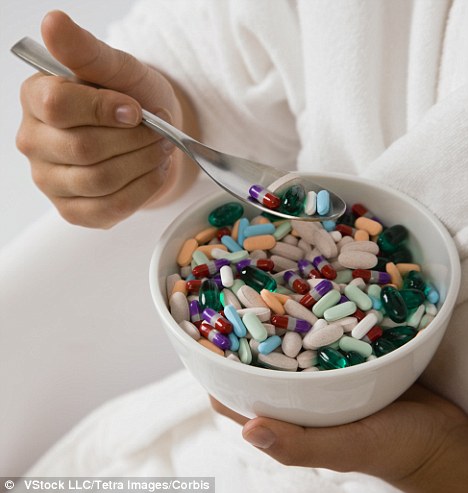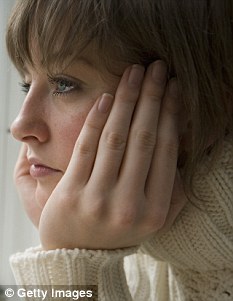 Just as David Cameron launches his campaign to boost national happiness, along comes grim news for the 12 million Britons taking happy pills. London-based researchers have just announced that antidepressants raise the risk of fatal heart attacks.
Just as David Cameron launches his campaign to boost national happiness, along comes grim news for the 12 million Britons taking happy pills. London-based researchers have just announced that antidepressants raise the risk of fatal heart attacks.
This research is only the latest wake-up call for a nation hooked on happy pills. Might we finally heed the warnings and shake ourselves out of our pharmaceutical stupor?
It is high time we did: a small mountain of studies shows that antidepressant drugs are largely ineffective. But more than that, they can ruin lives by creating chronic dependency and a grinding hopelessness that sometimes leads to self-neglect and death.
The latest study, by Dr Mark Hamer, a public health researcher at University College London, shows that people on the older drugs — tricyclic antidepressants — are at far higher risk of cardiovascular disease than those taking the newer class of pills, selective serotonin reuptake inhibitors (SSRIs).
But if I were taking SSRIs, I would not be cheered by the findings. Tricyclics were discovered in the Forties and it is only now we have identified these dangerous effects.
Moreover, some SSRI drugs are known to cause serious problems such as stomach bleeding. In addition, the withdrawal symptoms can be so severe that patients may become dependent on them.
Dr Hamer says his findings do not only affect people with depression, because antidepressants are also prescribed to people with back pain, headache, anxiety and sleeping problems.
Last year, according to Dr Hamer’s figures, about 33 million antidepressant prescriptions were dispensed in England.
At some point, surely, there will be no one left to prescribe for. In my view, it’s fast becoming one of the greatest medical scandals of our age.
The most worrying thing about these drugs is not their side-effects, but their widespread non-effect: they just don’t work for most people with mild to moderate depression.
Two years ago, researchers at Hull University concluded that the pills only benefit people who are most seriously, clinically depressed. In these extreme cases, there is often a physical problem in their brain, a result of genetics or accident. But what of the rest?
There is a growing view that many people are being needlessly drugged because the natural state of feeling unhappy is viewed as an illness, rather than a normal part of life that we should experience and learn from.
An American study of 8,000 people who had been treated for depression found that a quarter of them were not clinically sick, but had just undergone a normal life event such as bereavement.
Their symptoms, it said, should be left to pass naturally (that, of course, would be a blow to the drug manufacturers, who profit so handsomely from the mass consumption of their mind-numbing chemicals). For most of us, the healthiest option is to face our problems, rather than disappear down a black hole of antidepressant dependency.
One leading expert, Randolph Nesse, a psychiatry professor at Michigan University, argues that this mild form of depression is beneficial, often interjecting in life to tell us to stop what we are doing and reconsider.
This can help, he says, when something awful happens to us, such as a job loss or relationship break-up, when it makes sense to slow down to grieve, reassess and make changes.
But instead, we live in a world that tells us that when we feel out of sorts we need a pill to recover.
It is this belief that creates queues of patients at the doors of hard-pressed GPs, who often feel they have no option but to hand out happy pills as though they were sweeties.
Many patients later claim they couldn’t have coped without them. They will swear that ‘the drugs make me feel better, so they must be working’. But often the drugs do not actually work as chemicals. Instead, they merely reassure us — the so-called placebo effect.
In 2008, Professor Irving Kirsch at Hull University found something strange when he took a close look at some figures from drug manufacturers’ own trials of four common antidepressants.
The drugs improved patients’ sense of wellbeing. So far, so unremarkable.
But many of those involved in the trials were given sugar pills instead of antidepressants.
And their depression scores improved just as much as those on the real pharmaceuticals. In other words, the placebo patients put so much store by the magical (and much-promoted) power of antidepressants that they lifted their own morale without any genuine chemical intervention. Such is the life-enhancing power of human belief.
Everybody hurts: Sadness is a part of life and shouldn’t always be treated as an illness
But this phenomenon also has a dark side: the opposite of placebo, which is called the ‘nocebo’ effect.
This occurs when you convince someone that a particular thing will do them harm, and they begin to feel sick.
Talk to someone about food poisoning while they are tucking into a hearty meal and you will see the nocebo effect at work.
Something similar is happening in our pill-obsessed world. When we are convinced that we need drugs to get us out of an emotional crisis, we stop doing things to help ourselves.
This was clear from the latest research. Dr Hamer found that tricyclic drugs raise a person’s heart attack risk.
But that risk was dwarfed by another danger: the people taking the drugs often lost the will to look after themselves properly. They were more likely to smoke, be overweight and not exercise.
Dr Hamer says that if they started living more healthily they would cut their heart attack risk by three times. Exercise and weight loss would also help alleviate their depression and anxiety.
But people stuck in the role of helpless drug-munchers often cannot make that change for themselves.
They simply sit waiting for their questionable pills to work. And when the pills fail, they become even more demoralised. It’s a vicious cycle, and one that’s sucking in more and more vulnerable people.



SHARE YOUR STORY/COMMENT